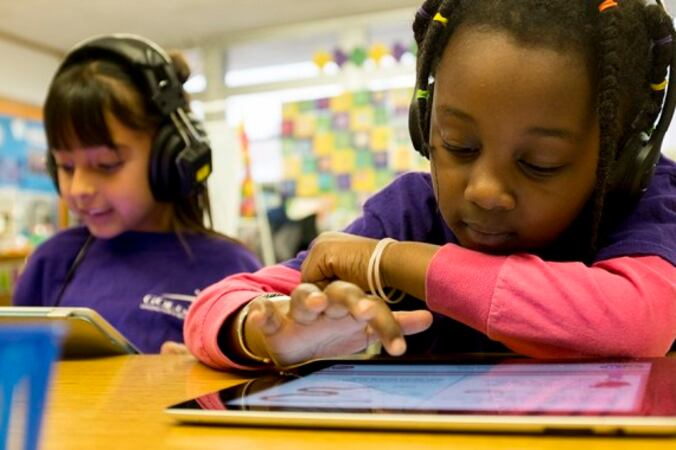New York City officials said Monday that schools cannot give most students failing marks this year and that parents will be able to choose whether or not their child’s transcript reflects more than a passing grade.
The long-awaited grading policy, which could affect the city’s competitive admissions process for middle and high schools, urges schools to consider the uncertainty students may still face seven months into the coronavirus crisis. Even now, children may have spotty access to reliable internet and devices. Some teachers appeared to be caught off guard by the new guidelines, even though report cards are due soon at some schools.
While no student’s GPA will include a failing grade, eighth graders and high school students will be required to make up incomplete course requirements or risk being held back. High school students will not receive credit for an incomplete course if they don’t do the outstanding schoolwork. That won’t affect their GPA but could leave them short of graduation requirements, as it would in normal times.
“This year’s grading policy maintains a high bar for student achievement and keeps our students engaged, while being responsive to the flexibility our families need in the ongoing pandemic,” wrote Danielle Filson, a spokesperson for the education department, in a statement.
She added that schools will be able to select a grading scale — letter grades, for example, or numeric marks — depending on what best meets the needs of their school community.
Officials are also encouraging schools to consider easing penalties for late work or extending assignment deadlines for individual students depending on their circumstances, including “personal loss, illness, or other trauma,” the guidance says.
As in the spring, schools will be required to give K-5 students a “needs improvement” grade instead of an F, while middle and high school students will be given a “course in progress” grade in place of a failing one.
Only eighth graders and high school students will be required to complete any outstanding credit requirements, according to a new 15-page document that explains this year’s grading policies. These students must complete outstanding coursework by June 2021 if they received incomplete grades between this September and February 2021. If such a grade comes after February, the deadline to complete course requirements is August 2021 for eighth graders and January 2022 for high school students, the document says.
High school students who don’t make their deadline for completing course requirements will not receive credit for that class, but their GPA won’t reflect the incomplete grade. Should parents choose for their child’s transcript to reflect only whether or not they passed, those marks won’t impact the student’s GPA.
Schools must provide “targeted instruction,” including live lessons, to students who receive a “course in progress” grade, the document explains.
Additionally, schools cannot rank students based on any grades they earned during remote learning in this past spring, and attendance cannot count toward grades.
Tom Liam Lynch, who heads the website InsideSchools, acknowledged the need to be flexible while the coronavirus pandemic still grips New York City. But he said the new policy may make it hard to judge whether schools are doing a good job reaching and teaching students.
“We at least need to have clear communication about the quality of teaching and the quality of learning,” he said. “These high level, broad categories, they make that conversation really, really hard.”
How to grade students in New York City is a particularly contentious issue, since many selective middle and high schools consider students’ academic records in admissions decisions. The process of applying and getting admitted to sought-after schools is competitive and often hazy, contributing to the city’s status as one of the most segregated school systems in the nation.
When the pandemic first struck, integration advocates called on the city to reform the admissions process. The city has yet to announce what criteria “screened” schools will be allowed to consider this year, but the extension of a more lenient grading policy could force another year of admissions changes.
“This is all nerve-wracking because it changes a lot, but at the same time the city’s admission system is so inequitable on so many different levels,” he said. “Real change has to be intentional. Real change cannot just be opportunistic. If the city is really serious about this kind of reform, then do it. And do it in a way that sticks.”
Third grade teacher Andrea Castellano said the challenges of remote learning have forced her to rethink how she grades her students. Some of them have computers, reliable internet, and parents who have time to supervise remote learning; others have little support and are doing their schoolwork on cell phones.
Students are only learning in person a few days a week, making it hard to assess how much they’re taking in, and a delay in the school year means she’s still administering assessments meant to gauge where students stand. Meanwhile, she has to submit report card grades next week, she said.
Castellano called the city’s new policy “a good start,” but that “feedback is more useful than grades” this year. She said she wished there was a greater focus on how much students grow, rather than whether they’ve mastered a particular concept.
“More holistic grading, more rubric grading, personalized feedback is much more useful and also practical in these circumstances. And if grades are for the purpose of moving students forward in their learning, that would be the best way to do it,” she said.






